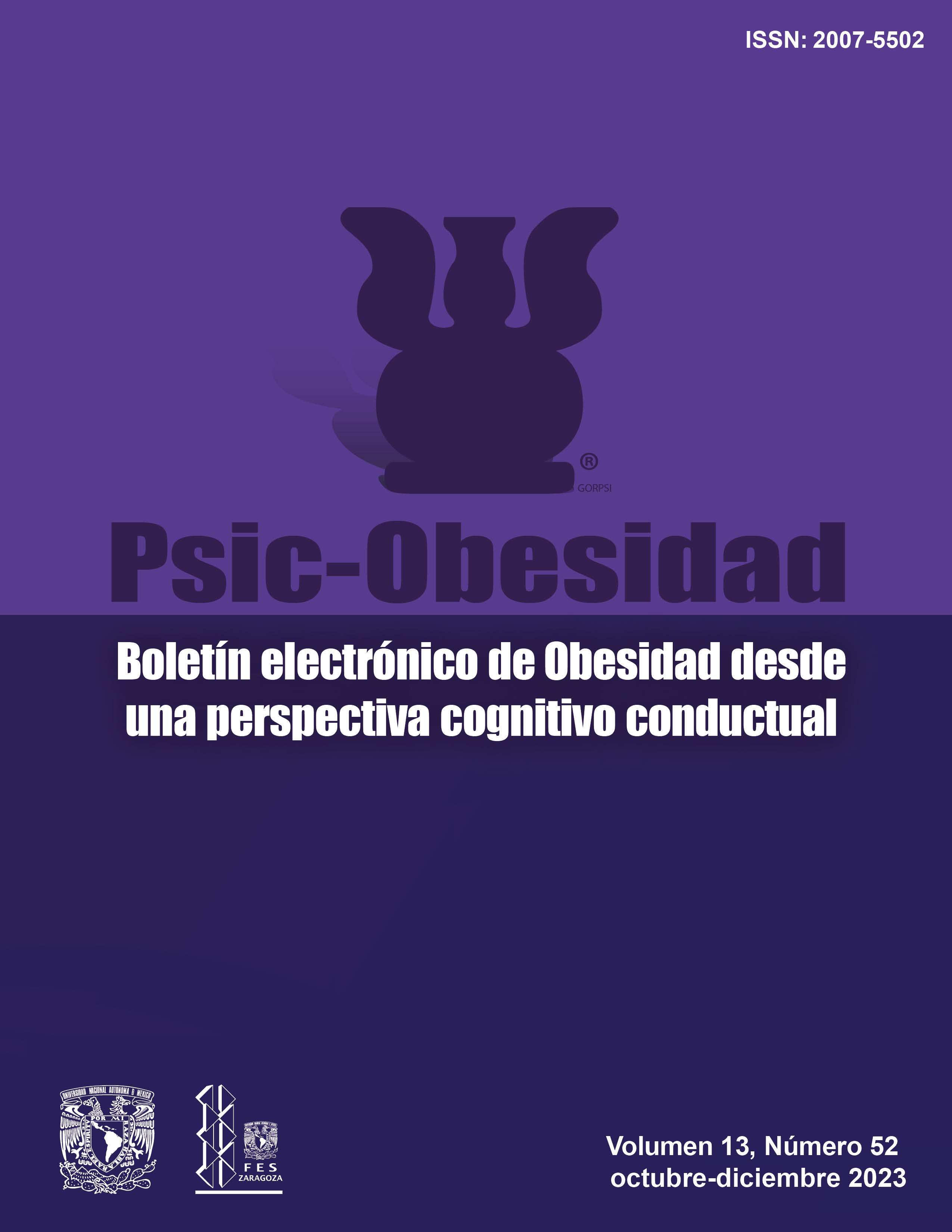Overweight, obesity and their relation to current social dynamics
Main Article Content
Abstract
Obesity is considered a multifactorial condition that can occur throughout life and at different levels of the health, economic, social, political and cultural system (Rivera, et al., 2012). The immediate causes of obesity are related to high energy intake and low energy expenditure, mediated by diet and physical activity at work, home, recreation and transportation. On the other hand, a social dynamic can be found in which the traditional food culture has been lost; because of work, study, family, transportation, the time dedicated to food preparation is scarce, favoring the acquisition of fast food, which contains high energy content. The present work is the result of an investigation regarding the current social dynamics that may influence the development of overweight and obesity, in which a survey was applied to 200 subjects, population of the Metropolitan Zone and the Valley of the CDMX. As large differences were observed between the factors that could be intervening in the overweight of the users, the minority that is at a healthy weight also referred to a healthy lifestyle, reflecting the areas of opportunity for health promoters and social workers, as well as the constant work in public policy.
Downloads
Article Details
Citas en Dimensions Service
References
Alcántara, A. (2019). Comida chatarra, en la mira del gobierno de AMLO. EL CEO. https://elceo.com/negocios/comida-chatarra-en-la-mira-del-gobierno-de-amlo/
Comisión Económica para América Latina y el Caribe (CEPAL). (2019). Revolución Tecnológica: desafíos y oportunidad para la industria, el empleo, la igualdad de género, y el desarrollo social en América Latina y el Caribe. https://www.cepal.org/es/eventos/revolucion-tecnologica-desafios-oportunidades-la-industria-empleo-la-igualdad-genero
García E. (2004). ¿Qué es la obesidad? Revista de Endocrinología y Nutrición, 12(4), S88-S90. https://www.medigraphic.com/pdfs/endoc/er-2004/ers043c.pdf
Grajales, C. (2003). Teoría social III. Escuela Nacional de Trabajo Social, Sistema de Universidad Abierta, Universidad Nacional Autónoma de México.
Instituto Nacional de Salud Pública (INSP). (2018). Encuesta Nacional de Salud y Nutrición 2018. https://ensanut.insp.mx/encuestas/ensanut2018/doctos/ informes/ensanut_2018_presentacion_resultados.pdf
López, O. (2020). Segundo Informe de gobierno. Secretaría de Salud. https://www.salud.cdmx.gob.mx/storage/app/uploads/public/5f8/743/6ed/5f87436edf649157403030.pdf
Paredes-F., B. (2008). Influencia del Enfoque Sistémico en el Trabajo Social. [Ensayo inédito]. Universidad Nacional del Altiplano, Facultad de Trabajo Social https://www.ts.ucr.ac.cr/binarios/pela/pl-000309.pdf
Rivera, J., Velasco, A., Hernández, M., Aguilar, C., Vadillo, F. y Muyarama, C. (2012). Obesidad en México: recomendaciones para una política de Estado. Universidad Nacional Autónoma de México.
Unidad de Apoyo para el Aprendizaje (UAPA). (2023). Teoría de las organizaciones. Escuela Nacional de Estudios Superiores, Morelia. Universidad Nacional Autónoma de México. https://programas.cuaed.unam.mx/repositorio/ moodle/pluginfile.php/1100/mod_resource/content/17/uapa_teoria_conceptosu4_/index.html




